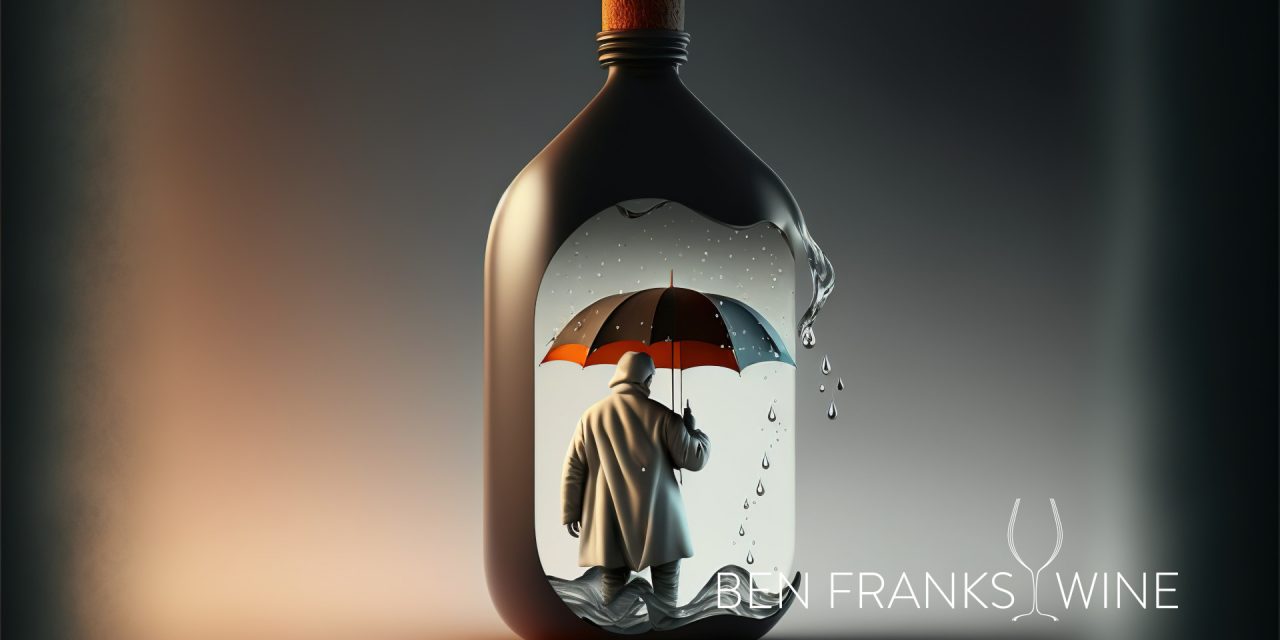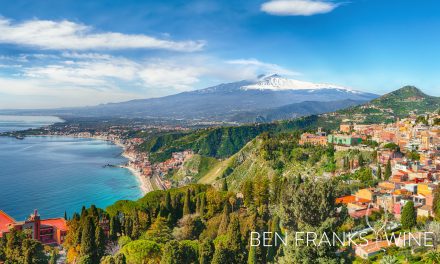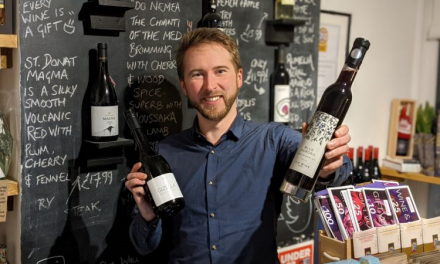Jessica Summer is being mindful of what she drinks in 2023 as more people than ever embark on Dry January. In her latest post, Jessica explores why young people today are sober curious and calls on the wine industry to embrace low and no alcohol alternatives to cater for a growing market of people who love wine but want to drink less.
Like many of us, my new year’s resolution list features the familiar lose weight, eat healthier, move more and drink less. New research by Alcohol Change UK shows “one in seven (17%) UK adults – estimated as 8.8 million people plan to go alcohol-free for 31 days in January, with three in 10 looking to cut down generally in 2023”. The creator of Dry January, Emily Robinson, says that the mental and physical results were amazing; “I slept better, had more energy, lost weight, and saved money,” she told Alcohol Change UK.
As someone who wants all these things but also owns a cheese and wine business there are some obvious challenges for sticking to my new year goals. I love cheese and wine; nothing makes me happier than hosting tasting events, selecting wines for a dinner party, choosing from a wine-list to pair with my meal, or sharing a special bottle with friends. I look at January as a time of reflection and planning, setting myself up as I mean to go on and working towards the exciting things in the year ahead.
Mindful drinking
I did consider doing Dry January but I don’t feel it is realistic to limit myself so dramatically and I also don’t want to cut it out completely. That said, it has caused me to stop and think about what I am drinking, why I am drinking it, and when. My goal is to drink less in 2023 but rather than joining the millions in Dry January I am committing to ‘Damp January’ and a year of mindful drinking, something that can easily turn into a habit and part of my lifestyle.
So what do I mean by mindful drinking?
In an article for Healthline, Wendy Bazilian, a public health and nutrition expert, explains that “mindful drinking is about awareness and being present in your choices. The goal is having a healthy relationship to alcohol”. Simply put? Question why you are drinking before you do. Are you having this glass of wine because you want to, or because you’ve met up with a friend and it’s what you have always done? Are you drinking a bottle of wine with dinner every evening because you want to, or is it part of your habits and routines?
“Gen Z are far more sober curious and are drinking much less than previous generations.”
As a millennial, many of my teenage years were spent drinking alcopops at house parties and then progressing to corner shop two-for-one wine deals before wine became a real passion of mine. I often drank far too much and suffered the consequences of the dreaded ‘Hangxiety’ (post-drinking feelings of anxiety and stress) the next day.
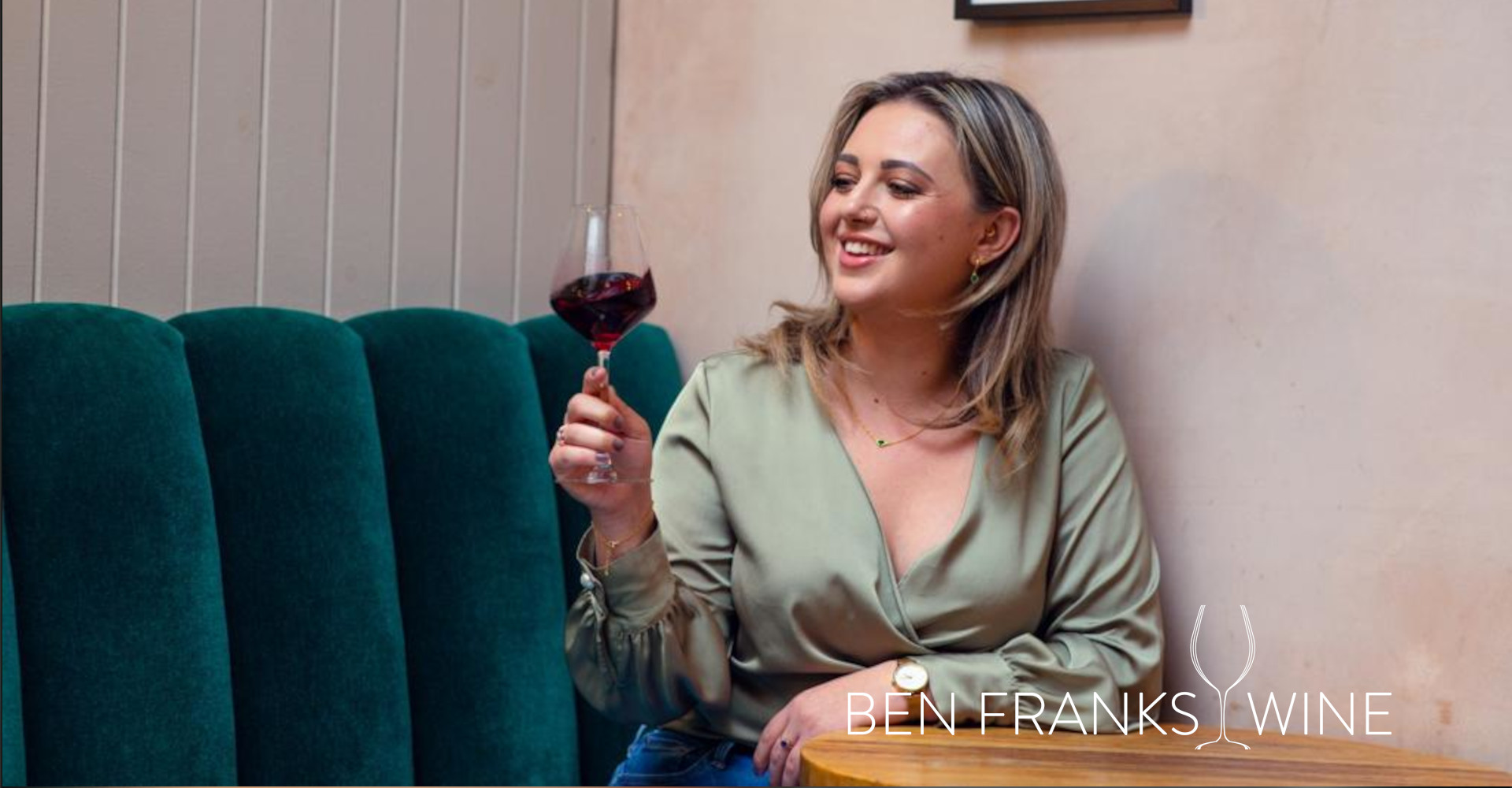
As I’m approaching 30 this year, I have learnt not to drink if I am feeling anxious, sad or negative, and I associate wine drinking with a healthy balanced lifestyle and positive attitude. I still don’t always get the balance right, but those really bad hangovers are once or twice a year instead of monthly (more like weekly at University!)
Nowadays my drinking is work related or social and includes trade tasting events, a glass of wine in the evenings, or sharing a bottle with friends at dinner. My motivations to drink less are weight-loss related but other big reasons people are opting for non-alcoholic options are the cost of living crisis and mental health. Most notably, Gen Z are far more sober curious and are drinking much less than previous generations.
In the UK’s largest recent study of drinking behaviours in 2019, 16-to-25-year-olds were the most likely to be teetotal, with 26% not drinking, compared to the least likely generation (55-to-74-year-olds), 15% of whom didn’t drink.
Having had similar conversations with friends, reflecting on my own desire to drink less and the drinking habits of Gen Z, I think it raises interesting questions for the future of the wine industry. In the coming years wine brands should consider producing equally good non-alcoholic examples of their wines.
When I have searched for non-alcoholic wine there are very few and finding a good example is even more rare! Obviously if you remove the alcohol from wine it will compromise the flavour, but winemakers can counteract this by adding botanicals or concentrated grape must to counterbalance flavour and mouthfeel. Wines in this space have improved over the last few years but I would love to see the wine industry embrace the low and no alcohol trend as much as the gin and beer industries and offer similar quality alternatives. How amazing would it be to see one of the big Champagne houses bring out a non alcoholic alternative? There is also the growing popularity of CBD drinks like Trip, and I am sure more brands will start popping up in this space. Wine needs to find its own firm footing here too.
Pay attention to what you’re drinking
As the owner of Mouse & Grape, a luxury cheese and wine pairing business, my ethos echoes the classic sayings: ‘everything in moderation’ and ‘too much of a good thing’. I encourage my customers to spend more on better quality artisan cheeses and wines, and save them for a special occasion, rather than as a daily treat. With the cost of living crisis, I think this is a mentality which will be shared across the hospitality world with people going out less but saving up for when they do go out to make it special. Spending a little more less often.
When I host my tasting events, I teach the guests how to drink wine to its fullest. Pay attention to what you are drinking, savour the flavours and enjoy the experience. Mindful drinking can be applied to the actual method of drinking wine as well as when to drink. That being said, I am not saying that spending more leads to better quality wines! This is where your local wine merchant, and wine communicators like myself come in to guide you to the best quality wines at the best price. I recommend supporting local wine shops, independents, joining a wine club and seeking out artisan producers to support.
If, like me, you are looking to drink less this coming year here are a few suggestions to help you on your mindful drinking journey:
1. Look for lower alcohol wines
Choose wines with lower alcohol content. Instead of big wines with 14-15% AVB seek out lower 10-11% alternatives
2. Explore alcohol free wine
I must confess having done Dry January a couple of years ago I was disappointed by the lack of good quality options here. The best I found that I can recommend is McGuigan Zero Sauvignon Blanc Alcohol Free which I thought was the best white alternative. There must be more out there, let us know in the comments!
3. Opt for a spritzer!
Canned wine company The Uncommon have a nice selection of wine spritzers at 5.5% ABV.
4. Learn about wine
The best way to gain an appreciation of wine in-order to drink mindfully is to learn about it. I would highly recommend studying with the WSET or attending wine tastings with industry professionals.
5. Enjoy your wine with food
There are so many healthy recipes which pair beautifully with a glass of wine. Experiment with different recipes and pairings!
6. Avoid drinking on an empty stomach – and don’t over do it!
It is safest to drink no more than 14 units of alcohol per week which is the equivalent of around six 175ml glasses. Drinking alcohol on an empty stomach means the alcohol is absorbed into your bloodstream quicker so best to enjoy your glass of wine with food – or even better cheese!
7. Invest in a Coravin or vacuum pump
Invest a Coravin (a wine preservation device that uses a hollow needle, which is inserted through the cork and fills the bottle with argon gas to pressurise it, and the wine, in turn, is poured through the needle) to help you get into the habit of having a glass or two instead of a bottle.
You could use a regular wine stopper, but this is less effective for preserving wine. Instead, I like to use a wine preservation vacuum pump with a stopper set which I bought on Amazon for £19.34. Just insert the vacuum wine stopper into the bottle and pump until you hear the patented “click”. The “click” signals an airtight seal. Once the wine has sealed the best place to store it to keep it preserved is the fridge. This goes for full-bodied white and red wines too, but just make sure you bring them back up to room temperature to enjoy them again! By using this method I can keep wines fresh for an extra 7-10 days once opened.
8. Have alcohol free days
I tend to drink 2-4 times a week and when I am drinking at trade tastings I mostly spit and have plenty of water.
~
Are you cutting down on the amount you drink? If so, let us know why in the comments below!
~
References:
https://www.bbc.com/worklife/article/20220920-why-gen-zers-are-growing-up-sober-curious

